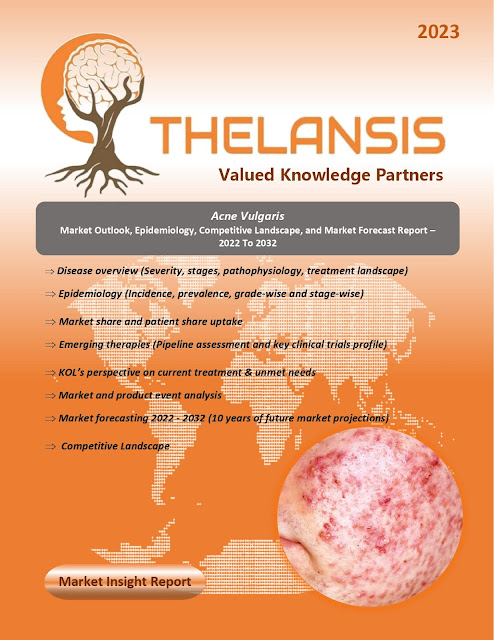Mitochondrial Encephalopathy Lactic Acidosis With Stroke-Like Episodes (MELAS) – Market outlook, Epidemiology, Competitive Landscape and Market Forecast Report – 2020 To 2030
A rare neurometabolic
genetic disorder that is progressive and multisystemic due to mitochondrial
dysfunction and that is characterized by encephalomyopathy, lactic acidosis,
and stroke-like episodes.
Etiology-
MELAS can result from
mutations in one of several genes, including MT-ND1, MT-ND5, MT-TH, MT-TL1, and
MT-TV. These genes are found in the DNA of cellular structures called
mitochondria, which convert the energy from food into a form that cells can
use.
Epidemiology-
Estimated prevalence has
been reported about 0.2/100,000 in Japan. It is one of the most frequent
mitochondrial disorders, which are estimated to affect 1/10,000 people.
The competitive
landscape of Mitochondrial Encephalopathy Lactic Acidosis With Stroke-Like
Episodes (MELAS) includes country-specific approved and pipeline therapies. Any
asset/product-specific designation or review and Accelerated Approval are
tracked and supplemented with analyst commentary.
KOLs
insights of Mitochondrial Encephalopathy Lactic Acidosis With
Stroke-Like Episodes (MELAS) across 8 MM market from the centre of Excellence/
Public/ Private hospitals participated in the study. Insights around current
treatment landscape, epidemiology, clinical characteristics, future treatment
paradigm, and Unmet needs.
Mitochondrial
Encephalopathy Lactic Acidosis With Stroke-Like Episodes (MELAS) Market Forecast:
Patient Based Forecast Model (MS. Excel Based Automated Dashboard) which Data
Inputs with sourcing, Market Event, and Product Event, Country specific
Forecast Model, Market uptake and patient share uptake, Attribute Analysis,
Analog Analysis, Disease burden, and pricing scenario, Summary, and Insights.
S. No Asset Company Stage
1 IW-6463 Tablets Cyclerion
Therapeutics Phase 2
2 Sonlicromanol Khondrion
BV Phase 1
3 Idebenone Santhera
Pharmaceuticals Phase 2
4 KL1333 Abliva AB Phase 2
5 Vatiquinone PTC
Therapeutics Phase 2/3




Comments
Post a Comment